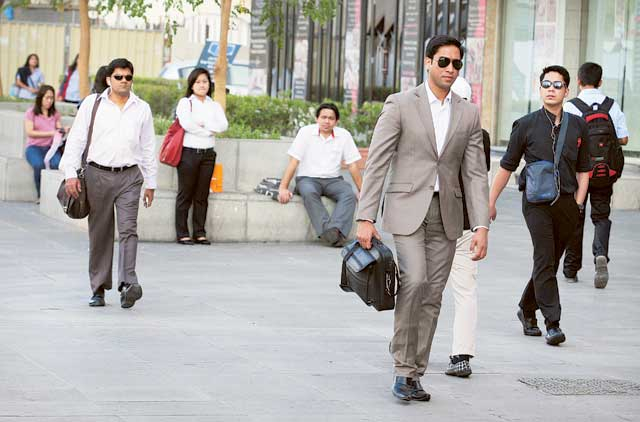Dubai: UAE companies seeking to save on the high cost of recruiting international talent are increasingly open to the idea of hiring locally available professionals on a part-time basis.
According to a provider of temporary staff based in Dubai, more and more organisations in the country, especially those in the information technology, telecommunications, retail, oil and gas, financial services and fast-moving consumer goods (FMCG) industries, are employing staff on a temporary basis to save time and money.
The demand for temporary manpower is prevalent in multinational companies, local conglomerates and semi-government organisations in the country. Roles related to business process support and banking are the most supportive of flexible staff, especially women. There are also opportunities for temporary staff in sales, business support and IT positions.
“A lot of companies in Dubai are hiring temporary staff. Taking advantage of a local highly skilled talent pool that would not want to work permanently but are willing to work as flexible staff is a lot cheaper than re-locating talent from abroad,” Abbas Ali, vice president of TASC Outsourcing, told Gulf News.
The company, which provides temporary manpower for 50 different job functions in many organisations around the UAE, has surveyed companies to gauge their attitudes towards hiring part-time employees.
Among the 184 employers surveyed, nearly half (45 per cent) feel that hiring temporary staff helps businesses save administrative or manpower costs.
“There are many other benefits for employers to hire flexible staff as well, such as being able to permanently hire after testing the capabilities of the talent. We approximate that a lot of employers would prefer hiring temporary staff based on the nature of their business,” said Ali.
“Based on our internal research and the client enquiries we receive, we can say that the majority of multinational companies, local conglomerates and semi-government companies use flexible staffing solutions in some form or the other.”
Ali said expatriates in Dubai with an existing UAE visa can take advantage of the growing demand for part-time employees.
Although foreigners need to have a work permit to stay in Dubai for more than a few months, the country is home to a huge talent pool of qualified expatriates who don’t have permanent work but do have a valid UAE visa. A number of expatriates residing in the UAE, for example, are on a husband’s or father’s visa.
Ali said that there are a lot of women in particular who are looking to re-enter the workforce after a break but do not want to commit to something full time just yet, or would like to try out a few different employers.
When surveyed by TASC, 72 per cent of women in the country said they prefer flexible work to full-time employment as it offered them a “solution” to many workplace-related issues such as job dissatisfaction and work-life balance.
“Expatriates can take advantage of flexi staffing if they have an existing visa. The survey highlighted an untapped talent pool – qualified professional women who have an existing UAE visa,” said Ali.
“Flexible staffing benefits the employers and the employees as it leads to a higher chance of retention. It also saves time for employers to hire flexible staff from within the UAE as opposed to sourcing international talent – who would require visas and additional administrative costs.”











